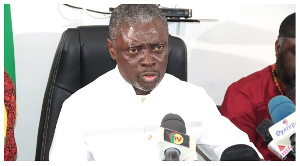Former Education Minister under the erstwhile Mahama administration, Professor Jane Naana Opoku-Agyemang has expressed immense worry about Ghana’s educational system and the path it appears to be treading.
Speaking at the 7th lecture series in memory of late President, Prof. John Evans Atta Mills Thursday, the renowned Ghanaian professor questioned the logic behind the consistent change in educational reforms and policies by the various political powers whenever there is a change in government.
Whilst condemning the practice, she maintained that it merely exposes “the collective lack of capacity to build consensus and tolerate dissenting views”. Rather, she insists, leaders must go beyond the ‘show of power’ and quest for political recognizance to objectively analysing existing reforms and fine-tuning them in the interest of development.
“Our reforms appear fraught with inconsistencies, persistent adjustments that cry out for a deepening of sober reflection. These reforms seem to leave out the fundamental question of who we are and where we are heading; of what on the axis actually needs to change”.
“Reforming education after each government takes over the responsibility of running this country is not always helpful. Any policy is as good as how carefully it is thought through; how it is strategically planned; how that policy is logically implemented; how it connects to all levels and types, in this case, of education; how it is systematically evaluated and fine-tuned; and how sustainably it supports the beneficiaries themselves and the future of the nation at large”, she stated.
“Some, if not too many of our policy interventions, are based on perceptions about falling academic and moral standards”, she continued. Adding, “others are effected because the power to do so exists, just to demonstrate that “I disagreed with you all along and now I have the muscle to make a change.” Such must stop now.” The number of reforms the country has undertaken over the years, according to Prof. Opoku Agyemang, is an indication that the decisions are usually not accompanied by systematic evaluations nor deep reflections.
“Since the days of Guggisberg, Ghana has had over 13 reforms in education. This means we undertake reforms more than once per decade. Ghana’s educational reforms are far too many. The revolving doors of reforms move too swiftly. They are usually not accompanied by systemic evaluations borne out of sombre, deeply reflected research that can aid policymakers to make the right interventions”.
She was emphatic about the fact that “Policy changes in education must reflect changes at each level and type at the onset, even more importantly, be established alongside other policy changes in the broad area of development”.
The 7th John Evans Atta Mills commemorative lecture was held at the Ghana Institute of Management and Public Administration (GIMPA) under the theme; “Inclusive Education for Sustainable Development”.
General News of Friday, 19 July 2019
Source: www.ghanaweb.com

















